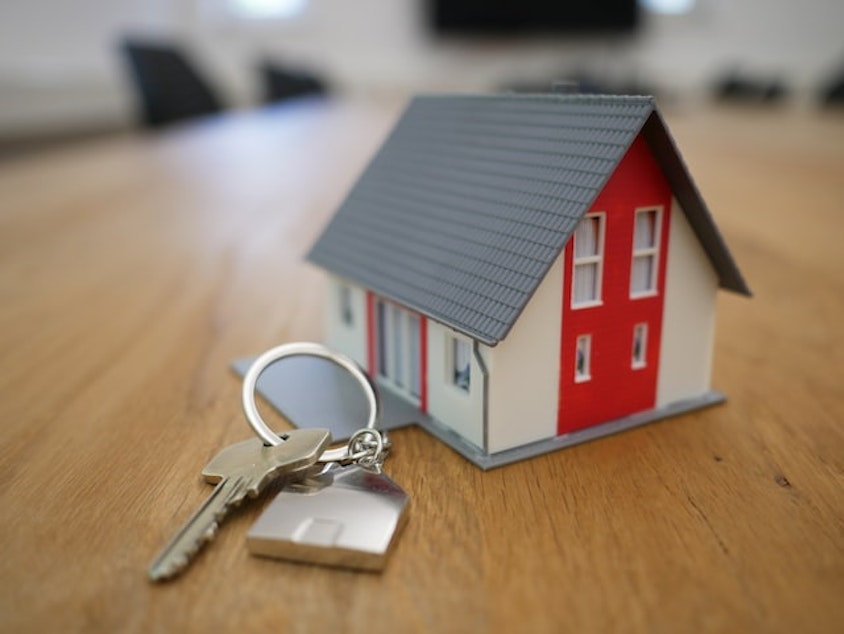Why housing is on the ballot in Seattle and Tacoma this year

For many across Western Washington, this year's general election ballot includes decisions that will impact one of the issues that voters are most concerned about: housing.
In Seattle, there’s a nearly $1 billion dollar levy to build more affordable housing. And in Tacoma, a renter-protection initiative in Tacoma has drawn hundreds of thousands of dollars in donations and spurred public debate.
Seattle voters are considering a property tax levy renewal for affordable housing.
"A yes means yes, you want the levy to be approved — you agree to a higher property tax rate to fund affordable housing," explained Seattle Times business reporter Heidi Groover.
The Seattle Housing Levy, as it's colloquially called, would replace another levy set to expire at the end of 2023.
"Different versions of this levy have been in place for years," Groover said.
The levy on the ballot this month would triple the size of the previous levy.
Sponsored
"The rate would be 45 cents per $1,000 of assessed value," Groover said. "So for the median home, valued at $855,000 in Seattle, that's $385 a year. That's an increase of about $260 a year from the current levy."
The money raised by the levy has been (and would continue to be) distributed by the city to nonprofits that build affordable housing. Usually, the money is paired with government sources to pay for the total cost of building.
Part of the new funding would also go towards increasing wages for people who work in permanent supportive housing.
Groover said the new iteration of the levy has been popular — the approval campaign has raised around $470,000.
But, even with the huge increase in funding, the levy won't be enough to cover the expected need for affordable housing in Seattle. Over the next 20 years, Seattle is expected to need 3,500 homes every year for people with low or moderate incomes, Groover said. If the levy is renewed, it will fund about 3,200 new homes over the course of seven years.
Sponsored
Groover noted that supporters of the levy say that it's a record level of investment, and will make difference. But even supporters acknowledge that the levy won't come close to meeting the full needs of the city, she added.
"That leaves is a greater question about where else we're going to find funding for this type of affordable housing over the next 20 years because the Seattle Housing Levy clearly is not sufficient on its own."
Meanwhile in Tacoma, voters are considering "a sweeping tenants rights measure that would implement several rules that are in place in Seattle and some other cities in the region," Groover said.
The rules under Citizens’ Initiative Measure No. 1. include limiting fees such as pet deposits and moving fees. It would also limit evictions during the winter or the school year, and require landlords to give tenants two notices of rent increases: one six months out, and one three months out.
Many of the measure's requirements mirror those in Seattle and other nearby cities, but there is an exception.
Sponsored
If a landlord increases rent by 5% or more and their tenant chooses to move out instead of paying, the landlord may be required to pay them two to three months rent as relocation assistance.
"The relocation assistance program, as far as I know, would be the first of its kind in our state," Groover noted.
In Seattle, landlords that raise the rent 10% or more are subject to similar laws, if their tenant makes 80% of median area income or less. And in Seattle, the city pays tenants. Landlords then have to reimburse the city.
"Supporters in Tacoma say that they didn't want to create a lot of new bureaucracy for the city," Groover said. "The opponents claim that this is going to require spending from the city to enforce all of these new rules."
The measure has sparked fierce debate in Tacoma — and a lot of fundraising both for and against the new protections. The campaign in favor has raised around $122,000. The campaign against the measure has raised more than $336,000.
Sponsored
Groover said that no matter how these policies fare on Election Day, she expects to see measures like the housing levy and renter protections continue popping up in Washington.
Under Washington state law, cities can't pass rent control measures. That leaves advocates continuing to push for rent control or rent stabilization at both a state and city level.
Groover said she's also expecting to see landlords continue being very vocally opposed to these efforts.






